 Hibiscus sabdariffa L. (roselle, red sorrel; Arabic: karkade) grows as large shrubs or small trees that produce huge, colorful, trumpet-shaped flowers promoted to reduce cholesterol levels.
Hibiscus sabdariffa L. (roselle, red sorrel; Arabic: karkade) grows as large shrubs or small trees that produce huge, colorful, trumpet-shaped flowers promoted to reduce cholesterol levels.
Researchers at the University of Malaya, in Kuala Lumpur, reviewed the data on its effectiveness and safety. Continue reading Lack of effect of Hibiscus sabdariffa L. on cholesterol →
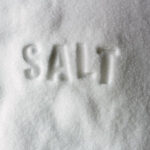 The NIH Committee on the Consequences of Sodium Reduction… reports it might be time to entertain second thoughts on the importance of salt restriction.
The NIH Committee on the Consequences of Sodium Reduction… reports it might be time to entertain second thoughts on the importance of salt restriction.
It was just a matter of time. Continue reading Benefits of reducing salt intake: Reality sets in →
 The American Heart Association has summarized the blood pressure-lowering effects of several alternative approaches and provided recommendations for their use.
The American Heart Association has summarized the blood pressure-lowering effects of several alternative approaches and provided recommendations for their use.
Here’s what we know in people with blood pressure (BP) levels higher than 120/80 mmHg. Continue reading Review: Benefits of CAM to help treat hypertension →
 Statins are prescribed to treat high cholesterol and cardiovascular disease. Increased fitness is recommended as an essential part of promoting health.
Statins are prescribed to treat high cholesterol and cardiovascular disease. Increased fitness is recommended as an essential part of promoting health.
Now, researchers at Georgetown University School of Medicine, in Washington DC, report the combined effects of fitness and statin treatment on mortality. Continue reading Advantages of adding exercise to statin treatment →
Continue reading Advantages of adding exercise to statin treatment →
 The Centers for Disease Control and Prevention reports that the overall prevalence of hypertension among US adults between 2003 and 2010 was 30%, or about 67 million people. About 36 million (54%) had uncontrolled hypertension.
The Centers for Disease Control and Prevention reports that the overall prevalence of hypertension among US adults between 2003 and 2010 was 30%, or about 67 million people. About 36 million (54%) had uncontrolled hypertension.
Researchers at Wake Forest University School of Medicine, in Winston-Salem, North Carolina, examined the prevalence of CAM use among older adults with and without diagnosed high blood pressure and the degree to which CAM is used specifically for the treatment of high blood pressure. Continue reading CAM use among people with high blood pressure →
 Dr. Claude Bouchard and colleagues from around the US and Finland tell us that people differ in their response to regular exercise.
Dr. Claude Bouchard and colleagues from around the US and Finland tell us that people differ in their response to regular exercise.
Sometimes these differences contribute to adverse changes in cardiovascular and diabetes risk factors, according to this study. Continue reading Adverse response to exercise →
 Despite the reported benefits, weight loss isn’t always advised for older adults because some studies have associated weight loss with increased mortality.
Despite the reported benefits, weight loss isn’t always advised for older adults because some studies have associated weight loss with increased mortality.
Researchers from North Carolina and Maryland, put this belief to the test. Continue reading Does losing weight reduce your risk of early death? →
I n this Cochrane review, researchers at Copenhagen University Hospital, in Denmark, estimated the effects of low-sodium vs. high-sodium intake on blood pressure (BP), renin, aldosterone, catecholamines, and lipids. Continue reading Blood pressure effects of low- and high-salt diets →
n this Cochrane review, researchers at Copenhagen University Hospital, in Denmark, estimated the effects of low-sodium vs. high-sodium intake on blood pressure (BP), renin, aldosterone, catecholamines, and lipids. Continue reading Blood pressure effects of low- and high-salt diets →
 There’s an inverse association between dietary protein intake and blood pressure.
There’s an inverse association between dietary protein intake and blood pressure.
How much? Researchers at Tulane University School of Public Health and Tropical Medicine, in New Orleans, Louisiana, compared the effects of soy protein and milk protein to carbohydrate supplementation in healthy adults. Continue reading Effect of dietary protein on blood pressure levels →
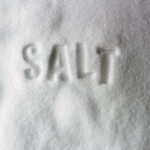 For decades, politicians like Mayor Michael Bloomberg of NYC have tried to get Americans to eat less salt.
For decades, politicians like Mayor Michael Bloomberg of NYC have tried to get Americans to eat less salt.
Now Scientific American asks, “But if the US does conquer salt, what will we gain?”
Answer: bland french fries. Continue reading Finally, sanity in the salt wars →
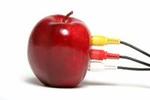 It’s thought that people using functional foods with approved health claims may be less likely to adhere to prescribed drug therapy.
It’s thought that people using functional foods with approved health claims may be less likely to adhere to prescribed drug therapy.
Researchers in The Netherlands assessed the influence of the use of phytosterol/-stanol-enriched functional foods on adherence to statin (cholesterol-lowering) therapy among patients initiating treatment. Continue reading Relationship between functional foods and adherence to statins →
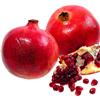 During the American Society of Nephrology Annual Meeting, researchers at Western Galilee Hospital in Nahariya, Israel, reported that patients on hemodialysis who drank moderate amounts of pomegranate juice saw improvement in lipids, blood pressure, and the number of antihypertensive medications required. Continue reading Pomegranate juice improves cardiovascular risk factors →
During the American Society of Nephrology Annual Meeting, researchers at Western Galilee Hospital in Nahariya, Israel, reported that patients on hemodialysis who drank moderate amounts of pomegranate juice saw improvement in lipids, blood pressure, and the number of antihypertensive medications required. Continue reading Pomegranate juice improves cardiovascular risk factors →
 Almost everyone knows that moderation of salt intake might reduce cardiovascular events. Right?
Almost everyone knows that moderation of salt intake might reduce cardiovascular events. Right?
Researchers in Europe studied whether 24-hour urinary sodium excretion predicts blood pressure and health outcomes. Continue reading Re-assessing the sodium-heart disease connection →
 Higher prevalence of hypertension among African Americans is a key cause of racial disparity in cardiovascular morbidity and mortality.
Higher prevalence of hypertension among African Americans is a key cause of racial disparity in cardiovascular morbidity and mortality.
Researchers in New York and California assessed the contribution of vitamin D to racial disparity in blood pressure. Continue reading Vitamin D and high blood pressure in African-Americans →
 Just how effective is a low sodium diet to treat high blood pressure?
Just how effective is a low sodium diet to treat high blood pressure?
This Cochrane review presents the evidence. Continue reading Sodium effects on blood pressure →
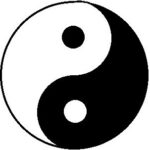 Prof. Ernst and a colleague critically evaluated the systematic reviews of tai chi for any improvement of medical conditions or clinical symptoms. Continue reading Reviewing the reviews of tai chi →
Prof. Ernst and a colleague critically evaluated the systematic reviews of tai chi for any improvement of medical conditions or clinical symptoms. Continue reading Reviewing the reviews of tai chi →
 Some say drinking coffee is associated with slightly higher blood pressure. However, these studies followed patients for less than 85 days.
Some say drinking coffee is associated with slightly higher blood pressure. However, these studies followed patients for less than 85 days.
Researchers around the US collaborated to review the results of longer term studies. Continue reading Defining the effect of coffee on blood pressure →
 Benefits of culturally appropriate storytelling were similar to those of antihypertensive drugs, according to researchers at Bedford Veterans Affairs Medical Center, in Massachusetts. Continue reading Storytelling to improve blood pressure →
Benefits of culturally appropriate storytelling were similar to those of antihypertensive drugs, according to researchers at Bedford Veterans Affairs Medical Center, in Massachusetts. Continue reading Storytelling to improve blood pressure →
 Researchers at the University of Rochester Medical Center, in New York, reviewed non-drug treatments.
Researchers at the University of Rochester Medical Center, in New York, reviewed non-drug treatments.
Let’s focus on herbals. Continue reading Limited value of herbals to lower blood pressure →
 Researchers in the UK and Columbia reviewed the association between chocolate and the risk of developing cardiometabolic disorders — high blood pressure, abnormally high glucose, elevated triglycerides, low “good” cholesterol, abdominal obesity, smoking, and physical inactivity. Continue reading Benefits of chocolate on the heart →
Researchers in the UK and Columbia reviewed the association between chocolate and the risk of developing cardiometabolic disorders — high blood pressure, abnormally high glucose, elevated triglycerides, low “good” cholesterol, abdominal obesity, smoking, and physical inactivity. Continue reading Benefits of chocolate on the heart →
Complementary and Alternative Medicine: Fair, Balanced, and to the Point
 Hibiscus sabdariffa L. (roselle, red sorrel; Arabic: karkade) grows as large shrubs or small trees that produce huge, colorful, trumpet-
Hibiscus sabdariffa L. (roselle, red sorrel; Arabic: karkade) grows as large shrubs or small trees that produce huge, colorful, trumpet-













